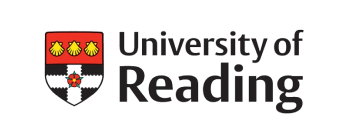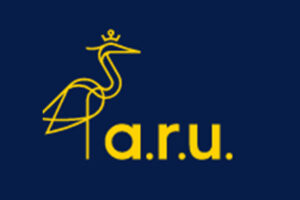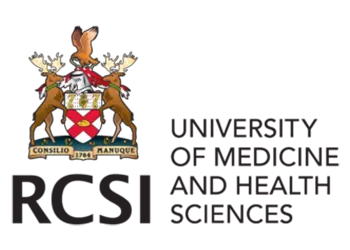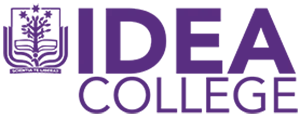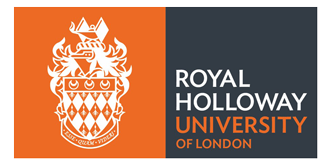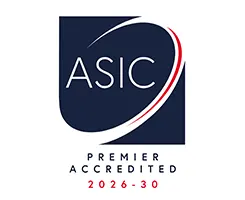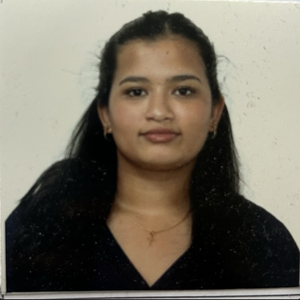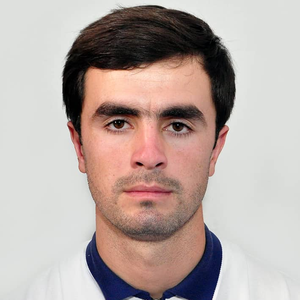1. Security arrangements for storing examination and assessment materials
1.1 A record is kept of all examination materials received by the Administrator.
1.2 All received materials are checked and then stored in the safe. If a check cannot be made immediately, all materials should be stored in the safe until a check can be made.
1.3 Papers are stored in the order in which exams are to be held.
1.4 A log is kept of all occasions when material is taken from and returned to the safe.
2. Use of calculators and other resources
2.1 Calculators can be used by candidates unless specifically prohibited
2.2 Calculators should be free of lids, cases or covers which have printed instructions or formulas. They should not be designed or adapted to offer any other functions such as language translation, symbolic algebra manipulation, or communication with the internet.
2.3 Other resources such as dictionaries are only allowed where the examination instructions specifically permit them.
2.4 Certain candidates may have pre-authorised allowance to bilingual dictionaries. The invigilator must ensure that these dictionaries do not contain any notes.
2.5 Word processors (e.g. laptop, computer) are allowed with the spelling and grammar check/predictive text disabled to a candidate where it is their normal way of teaching the subject and is appropriate to their needs.
2.6 The word processor must be used as a type-writer, not as a database, although standard formatting software is acceptable; must have been cleared of any previously stored data, as must any portable storage medium used. An unauthorised memory stick must not be used by a candidate. Where required, the centre must provide a memory stick to the candidate, which is cleared of any
previously stored data.
3. The exam room
3.1 It must be ensured that exam rooms are suitable in terms of heating, space, and outside noise.
3.2 Each candidate should have a table no less than one metre square with a gap of one metre between tables. The minimum distance in all directions from centre to centre of candidates’ chairs must be 1.25 metres.
3.3 A reliable clock should be easily visible to each candidate.
3.4 A whiteboard should be used to provide information on start and finish time, the centre number, subject title, and paper number.
3.5 The room should be free of any materials which might give help to candidates such as maps, diagrams or wall charts.
3.6 A seating plan should be created showing the position of each candidate. Should a candidate move during the exam, this must be recorded on the plan.
3.7 At the beginning of an exam, an attendance register should be completed and signed by the invigilator.
3.8 Senior members of staff may be present at the start of an exam, with the permission of the Academic Director, to identify and settle candidates and instil discipline; check that the candidates have been issued with the correct question papers for their subject, unit/component and tier of entry if appropriate; check that the candidates have the necessary equipment and materials, i.e. calculators, preliminary material, anthologies or set texts where permitted; and start the examination off.
3.9 Teaching staff who are called upon to enter the examination room during the course of the examination (because a candidate has identified a possible problem which the invigilator is unable to resolve) do not need prior authorisation from the Academic Director. If they leave the examination room they may only take the question paper with them if they need to check a possible problem with the relevant awarding body.
4. Invigilators
4.1 All invigilators must receive thorough induction prior to invigilating an exam
4.2 There should be at least one invigilator for each twenty candidates.
4.3 Invigilators should be vigilant at all times and not carry out any other activity during the exam such as reading, marking, etc..
4.4 All suspicions of candidate malpractice should be notified to the Academic Director or Director of Studies immediately
4.5 Invigilators should be suitably qualified and experienced adults. A teacher should not invigilate an exam of the subject they have taught during the course. In certain cases, a teacher of a subject can be present in the room to give technical assistance if required. However, this person should not be a designated invigilator for the exam.
4.6 Invigilators can communicate with those outside the room through his or her mobile phone, however this should be kept on silent mode.
4.7 The invigilator must take all reasonable steps to make sure that the following conditions are met.
- The correct examination question papers have been placed on candidates’ desks.
- The official examination stationery, including additional answer sheets, for the particular exam is available.
- Candidates do not have access to items other than those stated Food and drink may be allowed in the examination room at the discretion of the invigulator.
4.8 Potential technological/web enabled sources of information such as: iPods; iWatches; mobile phones; MP3/4 players; and wrist watches which have a data storage device are not
permitted.
4.9 All unauthorised items should be either left outside the room or with the invigilator.
4.10 Before candidates are allowed to start the examination, the invigilator must always:
- make sure that candidates are seated according to the set seating arrangements,
- tell the candidates that they must now follow the regulations of the examination;
- ask candidates to check that they have been given the correct question paper;
- tell the candidates to read the instructions on the front of the question paper;
- check that candidates have all the materials they need for the examination;
- tell the candidates about any erratum notices;
- instruct candidates about emergency procedures;
4.11 Invigilators must also give candidates the following information before the examination.
You must:
- hand in your mobile phone if you have not already done so. This is your final chance. Failure to do so may lead to disqualification;
- write in black ink;
- write your name exactly as it appears on the attendance register, student number and unit or component code or paper details on your answer booklet(s) and on any additional answer sheet(s) used;
- fill in any other details as necessary;
- do all work, including rough work, on examination stationery unless otherwise stated;
- write your answers in the designated sections of the answer booklet;
- neatly cross through any rough work but do not make it totally illegible, as it will be forwarded to the examiner;
- do any rough work for multiple-choice papers in the question booklet.
You must not use:
- correcting pens, fluid or tape;
- erasable pens;
- highlighter pens in your answers (although you may use them to highlight questions, words or phrases within the question paper or question/answer booklet. You may also use a highlighter pen to highlight extracts in any resource material provided);
- gel pens in your answers;
- blotting paper.
The invigilator may:
- read the question paper rubric (the instructions on the front of the question paper) to the candidates.
The invigilator must:
- announce clearly to the candidates when they may begin to write their answers;
- specify the time allowed for the paper(s);
- remind candidates that they are not allowed to communicate in any way with, ask for help from or give help to another candidate while they are in the examination room;
- that candidates are not allowed to communicate in any way with, ask for help from or give help to another candidate while they are in the examination room.
- only answer questions from candidates about the instructions on the front of the question paper.
The invigilator must not:
- direct candidates to particular questions or particular sections of the question paper;
- make any comment where a candidate believes that there is an error or omission on the question paper. The invigilator must however, refer the matter immediately to the exams officer;
- give any information to candidates about possible mistakes in the question paper, unless there is an erratum notice or permission has been given by the awarding body;
- comment on the content of the question paper;
- read a word or words printed on the question paper to a candidate, other than the instructions on the front cover;
- offer any advice or comment on the work of a candidate.
The invigilator must not undertake any of the above as they constitute malpractice.
5. Candidates with access arrangements
5.1 Special access arrangements for individual candidates should be identified before the exam and appropriate arrangements put in place.
5.2 The Exams Officer should notify invigilators in advance of arrangements made. In the case of students needing to sit an exam in a separate room, another invigilator will be required.
6. Policy concerning late arrival of candidates
6.1 Candidates who arrive up to one hour late should be allowed to sit the exam. It is in the discretion of the Exam Officer whether or not to allow the candidate extra time. His or her decision will be based on reasons for late arrival, whether or not adequate supervision arrangements are in place, and whether or not it is felt that a breach of security may have taken place.
6.2 If a candidate arrives more than one hour late for an exam lasting more than one hour (or after the finish time of an exam lasting one hour), the candidate will be classed as very late. In these circumstances, the invigulator will use his or her discretion to decide whether or not the candidate should be allowed to sit the exam.
6.3 If a candidate arrives in the afternoon for an exam which took place in the morning session, he or she will not be allowed to sit the exam.
7. Leaving the exam room
7.1 No candidate should be allowed to leave the examination room for at least one hour after the start time.
7.2 Candidates should leave exam papers in the room if they leave before the end of the exam.
7.3 Once a candidate has completed his or her work and left the exam room, they cannot be allowed back into the room.
7.4 If a candidate requests to leave the room temporarily (eg. for a toilet break), then he or she must be accompanied by a member of staff.
8. Malpractice
8.1 If a candidate is suspected of malpractice, the invigilator must warn the candidate that he/she may be removed from the examination room. The candidate should also be warned that the awarding body will be informed and may decide to disqualify the candidate.
8.2 The invigilator must record what has happened.
8.3 Wherever possible, the invigilator should remove and keep any unauthorised material that a candidate may have in the examination. If necessary, the invigilator should summon assistance.
8.4 The Academic Director has the authority to remove a candidate from the examination room, but should only do so if the candidate would disrupt others by remaining in the room.
9. Emergencies
The invigilator must take the following action in an emergency such as a fire alarm or a bomb alert.
9.1 Stop the candidates from writing.
9.2 Collect the attendance register (in order to ensure all candidates are present) and evacuate the examination room in line with College policy on evacuation.
9.3 Advise candidates to leave all question papers and scripts in the examination room.
9.4 Candidates should leave the room in silence.
9.5 Make sure that the candidates are supervised as closely as possible while they are out of the examination room to make sure there is no discussion about the examination.
9.6 Make a note of the time of the interruption and how long it lasted.
9.7 Allow the candidates the full working time set for the examination.
9.8 Make a full report of the incident and of the action taken, and send to the awarding body.
10 Finishing the exam
10.1 At the end of the examination invigilators must tell candidates to stop working and remind them that they are still under examination conditions.
10.2 Candidates who arrived late and were allowed the full working time to do their examination should be advised to continue.
10.3 Candidates should be reminded that their names, and ID numbers should be written on their answer booklet and on any additional sheets.
10.4 All scripts should be collected from the candidates before they leave the room.
10.5 Invigilators should ensure that all additional sheets should be attached to a candidate’s answer booklet with a treasury tag.
10.6 Scripts should be placed in the same order as the attendance register and the names and numbers checked against the register.
10.7 Any unused stationery should be collected from the exam room and unused answer booklets and additional sheets should be returned to the safe.












